Pasta lovers, don’t sleep on Koshary. The rich, bright flavors of tomato sauce and garlic paired with the crunch of fried onions (and made heartier with lentils and chickpeas) make it a dish worth writing home about.
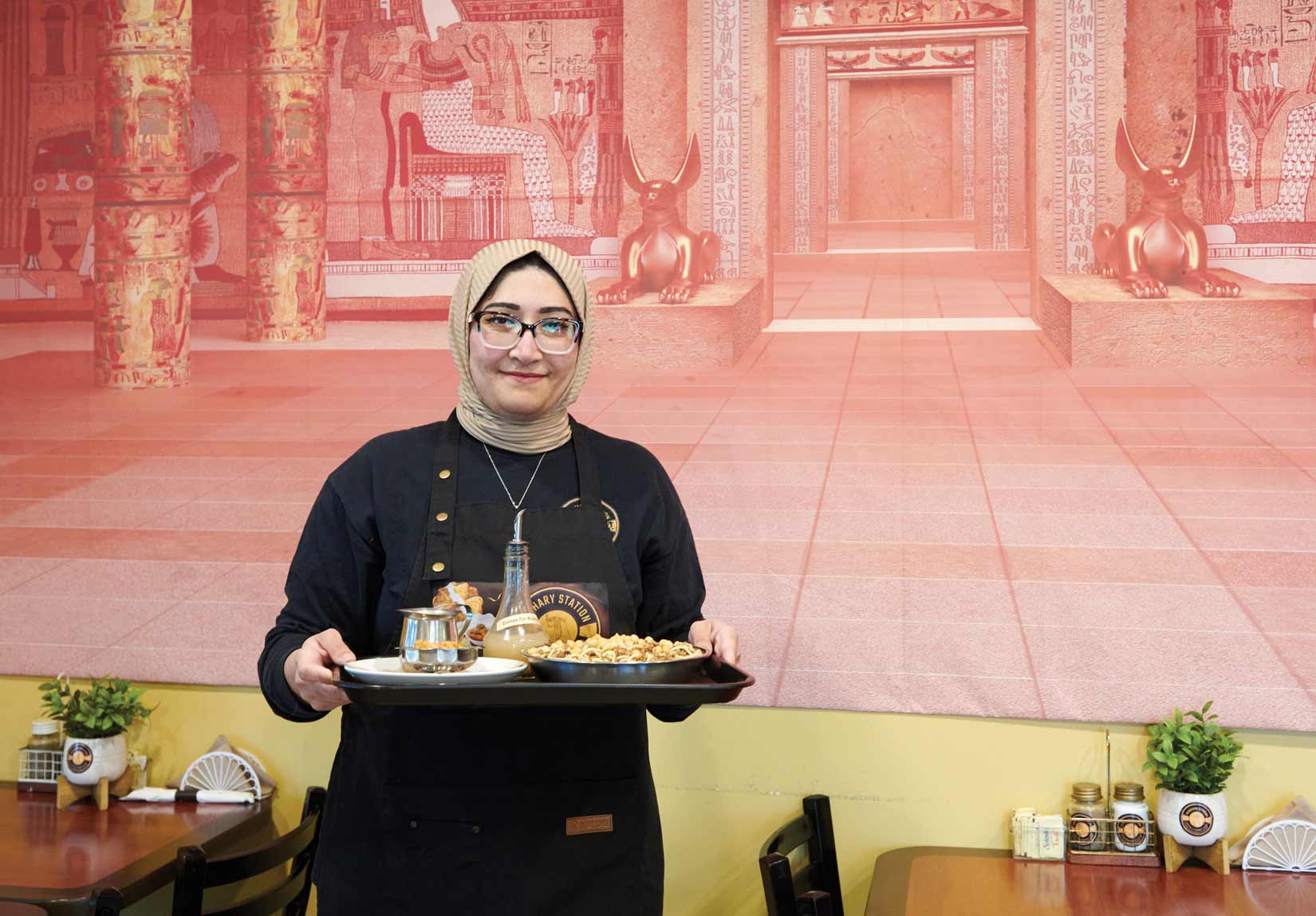
Radwa Matar, owner of Koshary Station in Millersville, delivers an order of the restaurant’s namesake Koshary to a table.
Family Treasures
Early on an Egyptian morning, Radwa Matar would awake to the sounds of familiar voices gathering in her childhood home in Al-Sharqia Governorate, a lush agricultural landscape north of Cairo, near the Mediterranean Sea. The doors were “open for everyone,” she explains. “I used to wake up in the morning to my mom’s friend sitting out drinking tea and having cookies.” Her aunts and grandma frequently made impromptu visits, asking the young girl to visit with them.
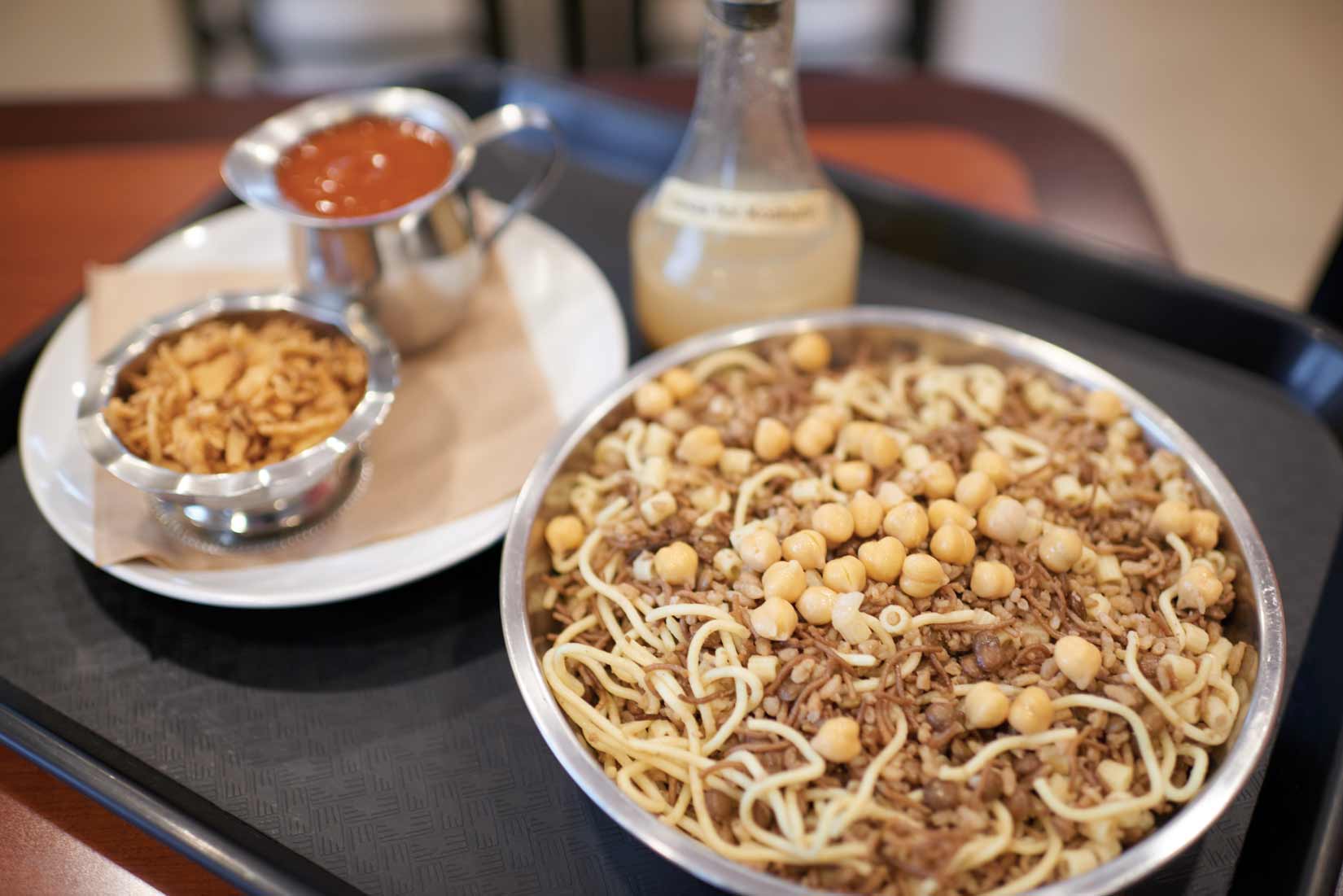
Plated Koshary ready to enjoy. Egypt’s national dish, Koshary is comprised of mixed pasta, short-grain rice, lentils and chickpeas topped with homemade spiced tomato sauce and crispy fried onions. Bright notes of garlic appear through melded flavors and textures.
She loved the expectedly unexpected visits, a sentiment she still holds dear today. “I always have my friends come over; we share food, everyone brings something cooked, something special. The kids spend the whole day together. It brings memories back from home.”
As a young girl, Radwa helped her mother in the kitchen, where she learned the basics of food preparation and cooking. According to Radwa, “In Egypt, everyone cooks with a spirit, with love,” a sentiment known as nafas. “Nafas has lots of meanings, it’s like breathing or spirit. Soul. Love. As Egyptians, we cook every single day. [My mother] asked me to help her in the kitchen, sometimes she would give me the whole recipe and say, ‘Do it your way, I’m going to correct you as we go.’ I started from here. If you were cooking fish, you have to know how to clean it first,” Radwa continues.
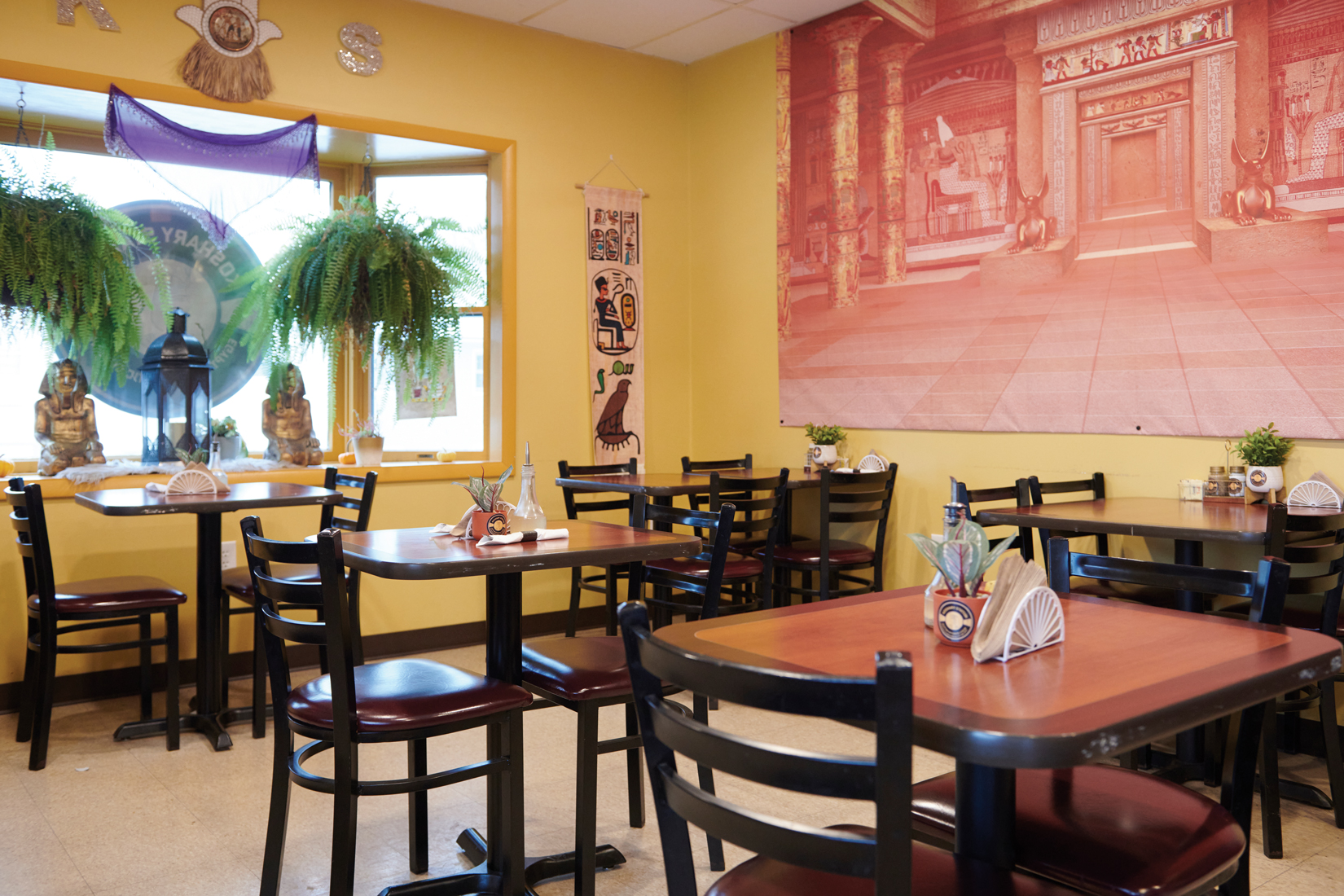
Egyptian décor distinguishes Koshary Station’s dining room, which seats 22 guests. Outdoor seating and carry-out are also available.
Radwa’s life changed when she was 18 years old. “I got married when I was 18. It was a whole new world for me, [then] moving to the United States, learning how to really cook without any help, on my own for everything. It was a big jump from relying on my family to being responsible and having my own life,” notes Radwa.
To prepare for her new life and, in a sense, bring her family with her, Radwa gathered favorite recipes from her family and her mother’s friends. Everyone gladly provided Radwa with explicit directions, accounting for each step, every insight and every morsel of wisdom as only they could. “I have everything in one book from all my family, everyone around my family. They gave me recipes, every trick, everything, so when I make it, it turns out the same,” she explains.
A Blockbuster Night
In 2006, Radwa and her husband, Mohamed Ibrahim, moved to the United States. “Before I got married, I was scared [of] going to a different country without my family living with me, and it was hard to call them,” Radwa explains. “I used to buy prepaid [phone] cards,” accounting for differing time zones and hoping her mother was home to answer. “You could send emails, but it took time for them to answer. Now, you can send a text message or video call them and they can answer,” she says.
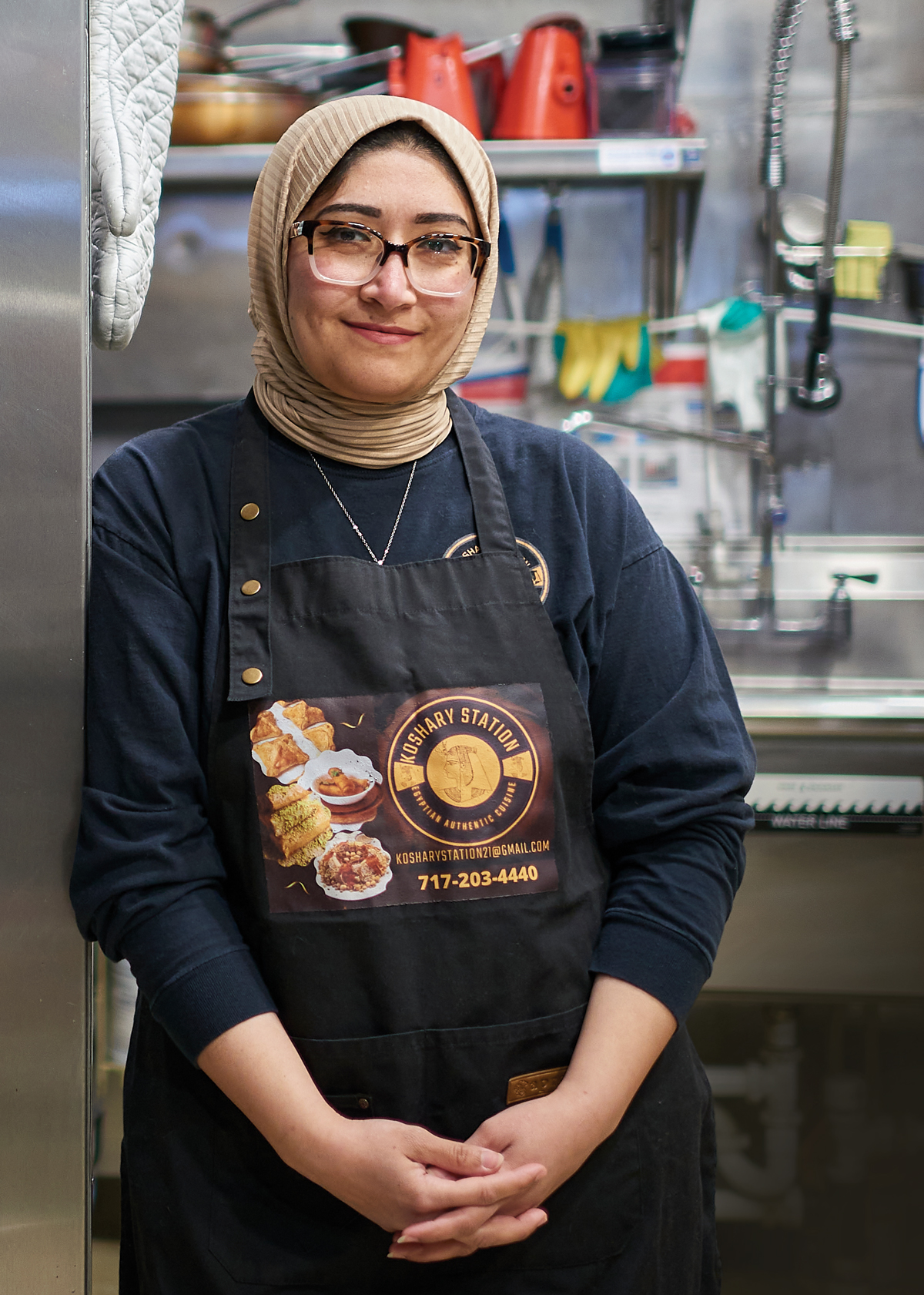
Radwa Matar learned to run a commercial kitchen through working in cafeterias and for catering companies.
The language barrier was Radwa’s next hurdle to settling into a life in the U.S. “I needed to learn English to communicate with people,” she says. Mohamed had a new DVD player, which Radwa saw as an opportunity. “We used to go to Blockbuster to rent movies, and I’d watch movies with English subtitles,” she recalls. “I wanted to learn more English, so I’d pause and write down the words I didn’t understand.” Using a pocket translator, she’d look up words and write down their definitions. From there, an Arabic-to-English book helped her discern correct pronunciations. “That’s how I learned English when I moved here,” says Radwa.
Paving the Way
At the same time, she was learning how to cook independently in her new country.
Translating the ingredients and steps of each recipe was made easier with a cookbook from famous Arab chef, Osama El-Sayed, It Is More Delicious With Osama, which helped her to convert ounces and cups to metric measurements like grams and liters. In preparing the Egyptian recipes Radwa collected from family and friends, she had to source the authentic ingredients, often imported from Egypt.
In those situations, and others less defined, Radwa couldn’t ask her family for advice. Her mother’s chocolate cake recipe, for example, didn’t include precise measurements, so she found a seemingly identical recipe online, shared by an Egyptian baker living in Canada. “When I tried it, I knew it was the same [recipe],” says Radwa. The author even made specific recommendations on where to source the best quality ingredients.
Over time, Radwa’s repertoire strengthened. Family members began asking her for help. Now at every holiday, when someone calls asking for her help with family dishes, she responds with a picture of the recipe and her notes. “I like that connection,” says Radwa. “I like to be needed by my family or friends. I feel joy because when I needed the help, I found it.”
Koshary Station
Over time, Radwa took jobs cooking in cafeterias and for caterers. Through those jobs she learned the essentials of running a commercial kitchen. Among her friends, Radwa was known for making Koshary. “Every time I cooked Koshary, I sent it to all of my friends. I cooked so much, I invited all my friends to eat with me, and if they could not come, I sent them a plate.” When she decided to open her own restaurant, Radwa instinctively knew to call the business Koshary Station, “because I love Koshary so much,” she says. “They told me no one’s gonna like Koshary, and I said, ‘No, they’re gonna love Koshary! Just wait for it.’”
Quintessentially Egyptian, Koshary is the national dish of Egypt. Linking Africa to the Middle East, surrounded by the Mediterranean and Red seas, geography has a profound impact on Egyptian food. An amalgamation of Mediterranean flavors, ingredients and textures, Koshary is made with a mix of macaroni, vermicelli, Egyptian rice and lentils. Styled preferentially, chickpeas, fried onions, rich tomato sauce and daqaa, a dressing made with olive oil, garlic, salt and pepper, can be added for extra flavor. Radwa’s key to Koshary? “Cooking the lentils and rice and vermicelli salad together,” she reports. “When I cook [rice] with the lentils, rice takes on the color and gives it more flavor.”
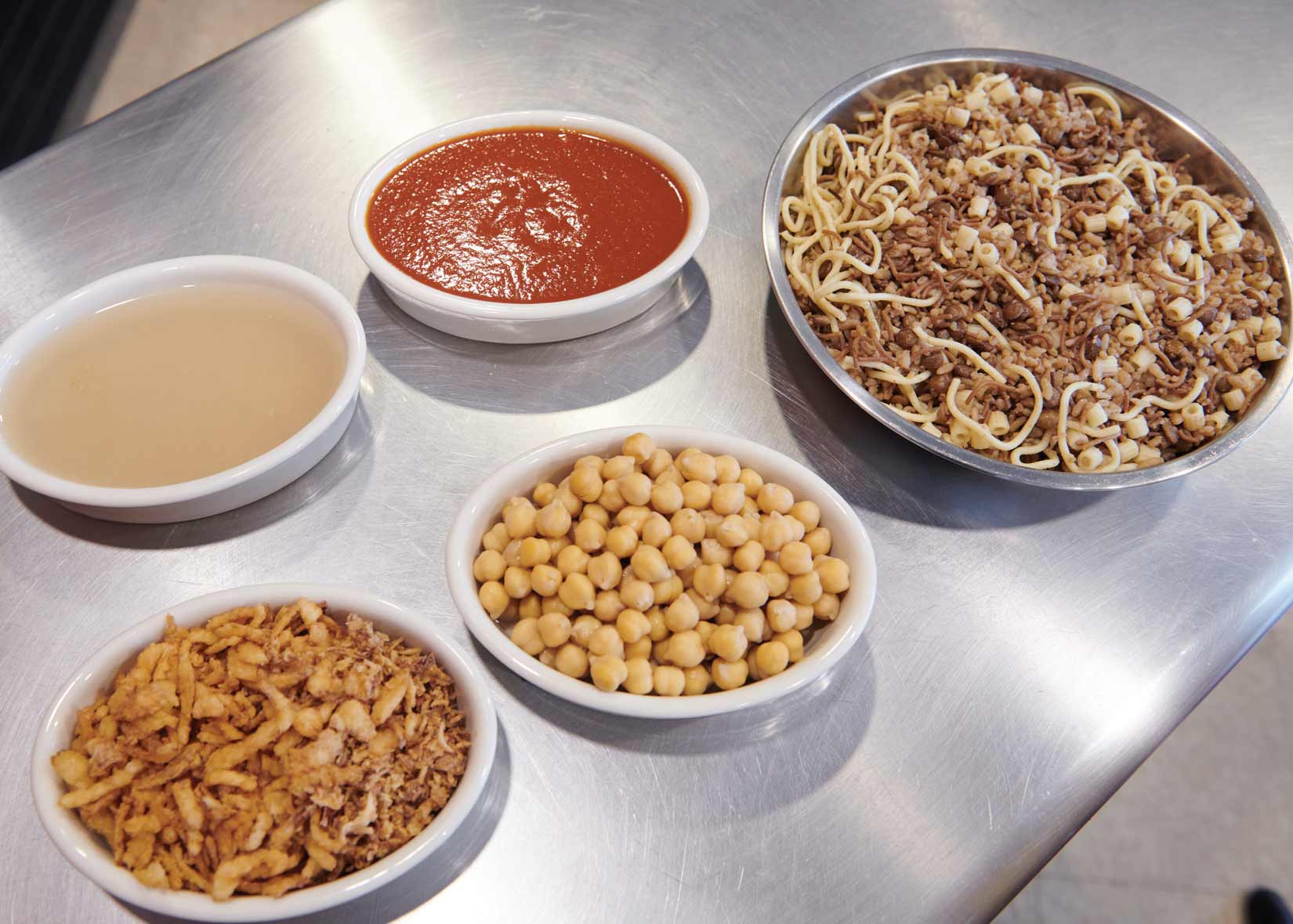
Optional toppings for Koshary include spiced tomato sauce, onions, chickpeas and Daqaa, a dressing made with olive oil, garlic, salt and pepper.
Radwa eventually joined other women offering their native Egyptian, Iraqi, Moroccan and Syrian dishes. Renting commercial kitchens and a community space above Prince Street Café, they sold their food as à la carte dinner platters. Learning from the international sisterhood around her, Radwa adopted new ingredients to enhance her Egyptian recipes. Later, she committed to the Lititz Farmers Market on Thursday evenings and Manor Market on second Saturdays in Millersville.
One Saturday in 2022, while serving food at a pop-up event at Phantom Power, a live music venue in Millersville, a customer mentioned restaurant space newly available across the street. Radwa immediately walked over to the building and called the owner, requesting to see the space right away. Inside, the restaurant was completely gutted.
Aside from the renovations, Radwa faced greater responsibility: running a restaurant as opposed to a more flexible catering business. Radwa and Mohamed also have two sons, Adam and Omar, to look after. “Mohamed asked, ‘Are you crazy? Are you going to spend all our money?’” says Radwa, who replied, “Oh, it’s gonna be good! Don’t worry, it’s gonna be for the family.” There were no other Egyptian restaurants in the area, so she would have to introduce the community to Egyptian cuisine. “He said, ‘Okay, if you can do it, I trust you,’” recalls Radwa.
By November 2022, renovations of the restaurant on South Prince Street in Millersville were underway, finishing in February 2023. Koshary Station, described as “The first halal Egyptian family-owned restaurant in Lancaster County,” opened later that month. (Halal is an Egyptian word meaning “permissible” under Islamic law. It also refers to the way animals are slaughtered: in the name of God and with as little suffering as possible.)
Today, Radwa and her friend, Riham Ahmed, can be found cooking or serving food at the restaurant. Radwa’s older son, Adam, helps at the restaurant after classes at nearby Penn Manor High School. Radwa hopes to introduce more people to Egyptian cuisine, perhaps expanding to additional locations one day, while keeping the original restaurant true to its roots.
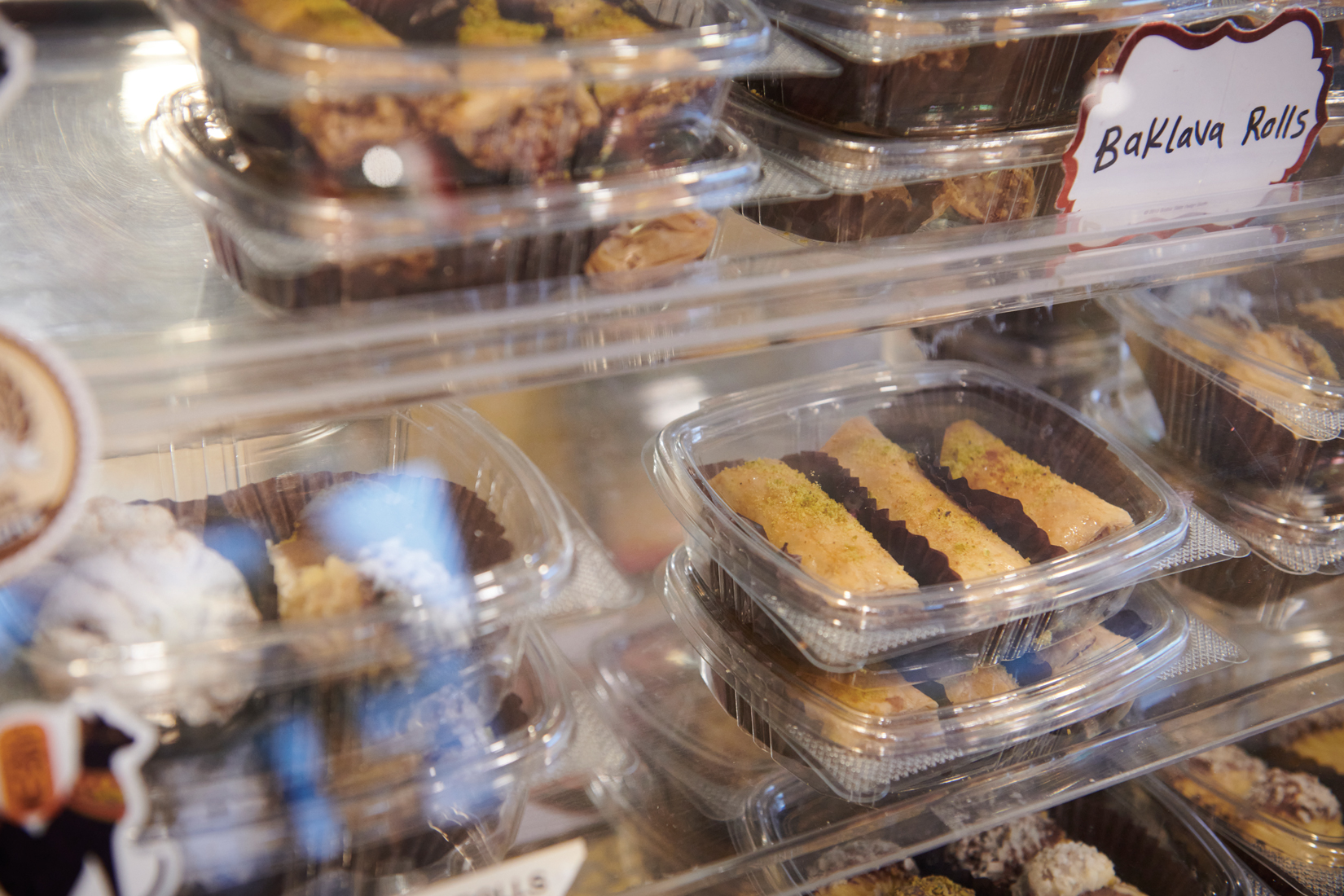
Desserts range from flaky baklava to betefour (Egyptian butter cookies). Kaahk, which are biscuits used to celebrate Eid al-Fitr at the end of Ramadan, are also available.
Favorite Dishes
The chicken fajita platter is comprised of Egyptian rice, a short-grain rice delicately cooked with a nice tooth. The yogurt-based sauce is mildly tangy, served with red and yellow onions and green bell peppers and accompanied by a salad of carrots, cucumbers, and tomatoes. Pita, as well as hummus, are made in-house.
Moussaka is a dish of fried eggplant, potatoes and peppers with a rich, silky texture. Served atop Egyptian rice, the savory tomato sauce has warm notes of cinnamon or nutmeg. Don’t limit yourself because of the vegetarian label; like Koshary, moussaka is a warm, hearty dish.
Egyptian coffee is a strong, thick, and flavorful coffee that’s often spiced with cardamom and other local spices. It’s traditionally served in small glasses with a thin layer of foam on top.
Ramadan
For the Muslim community, Ramadan began on February 28, ushering in a month of community, prayer, self-reflection and fasting from pre-dawn to dusk. The occasion marks an effort to avoid negative acts and achieve spiritual and moral growth while sharing social connections, especially during breakfast and prayer. Based on the Islamic lunar calendar, Ramadan occurs every 354 days, making fasts longer or shorter than in other years. Fasting ends on March 31 with Eid-al-Fitr or “Festival of the Breaking of the Fast.” The expression “Eid Mubarak” translates to “blessed holiday.”
Koshary Station, 4 S. Prince St., Millersville, Facebook


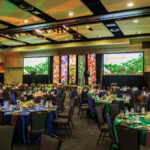


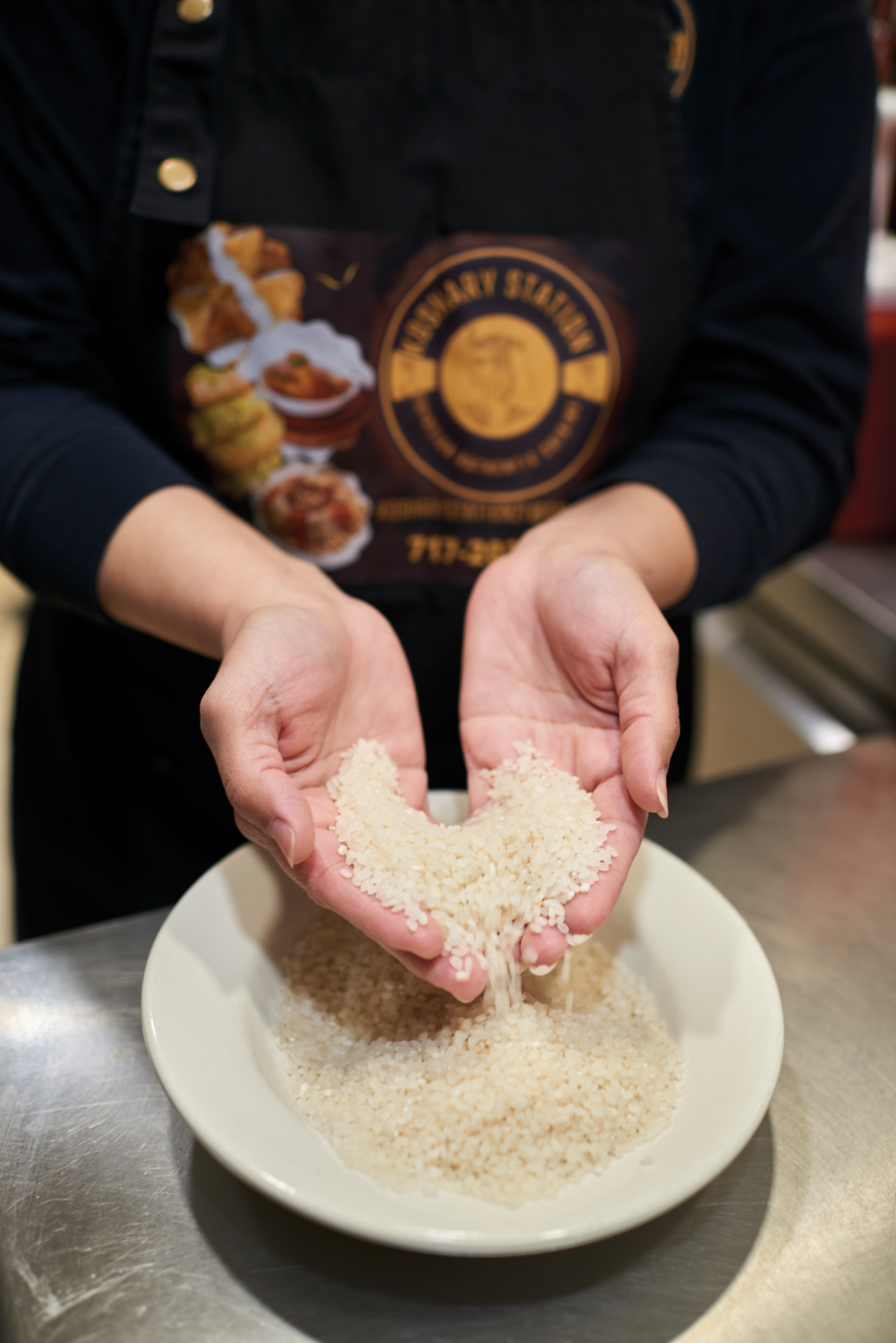
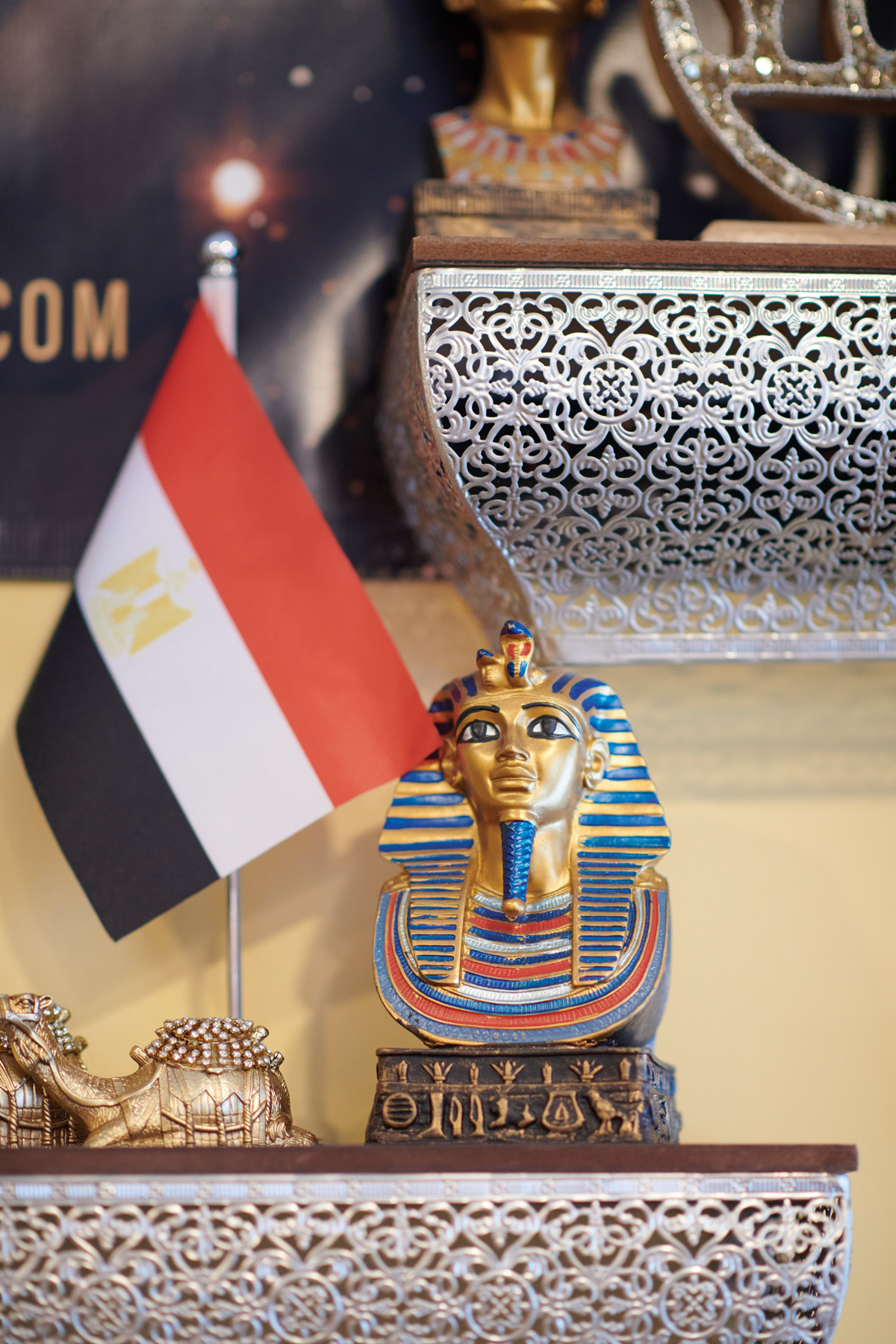

SHARE
PRINT